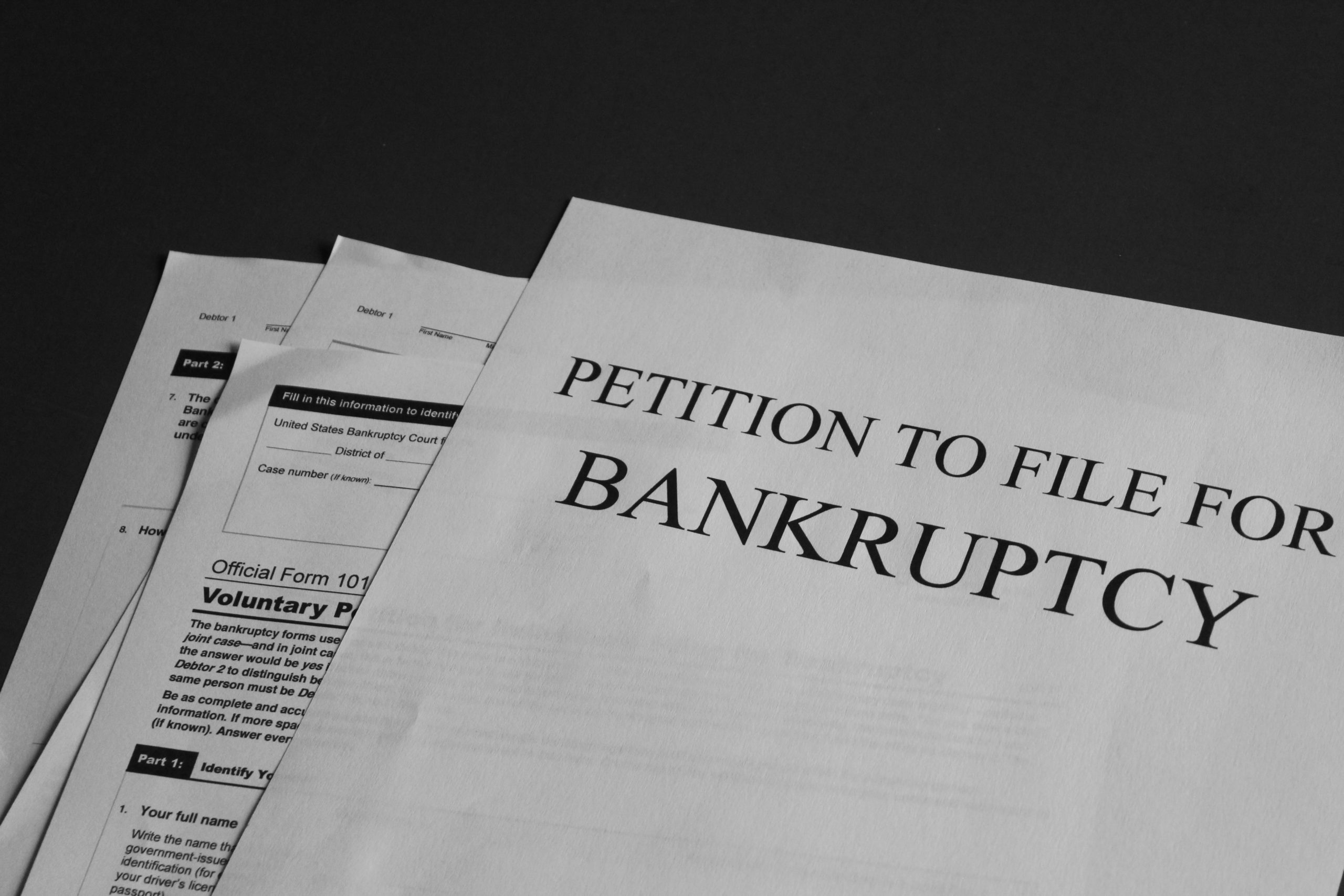Getting Heard: When Are Hearings Before the NJDEP or Courts Available?
Every day, the New Jersey Department of Environmental Protection (“NJDEP”) makes many decisions which disappoint the agency’s varied stakeholders. Individuals are upset with NJDEP land use permitting decisions, either because they prevent planned development or allow development on adjacent properties. Permit applicants are upset with limitations placed upon various wastewater or air emissions discharge permits. The ways by which parties may be unhappy with NJDEP decisions are seemingly endless. If a party is aggrieved by an NJDEP decision, what options are there? Go to Court? Seek a hearing before an administrative law judge? This article will explore some of those possibilities.
Hearings Before an Administrative Law Judge
Under the New Jersey Administrative Procedure Act, N.J.S.A. 52:14B-1 et seq. (the “APA”), whether a hearing before an administrative law judge is available depends upon the status of the aggrieved party. Was the petitioning party directly impacted by the NJDEP’s “permit decision” or is the petitioner a third party only indirectly impacted by the agency action? Procedurally, an aggrieved party submits a hearing request to the NJDEP Commissioner’s office. If the Commissioner determines that the petitioner has standing and the request has merit, then the Commissioner will transfer the matter to the Office of Administrative Law to be handled as a contested case before an administrative law judge. A “permit decision” is defined to mean “a decision by a State agency to grant, deny, modify, suspend or revoke any agency license, permit, certificate, approval, chapter, registration or other form of permission required by law ….” N.J.S.A. 52:14B-3.2. This definition is quite broad and would include most, if not all, public agency decisions, including, for instance, those related to land use permits, air or water emissions permits, site remediation decisions, etc.
Where the party wishing to challenge the NJDEP “permit decision” is the party directly involved in, or impacted by, the permit decision, that party has a right to contest the NJDEP “permit decision” through a contested case hearing before an administrative law judge. N.J.S.A. 52:14B-10(c). The analysis is more complex with respect to the rights of parties other than an applicant to obtain a trial-like administrative hearing.
The APA declares that state agencies may not promulgate rules which allow third parties to appeal from permitting decisions unless such hearings are authorized by federal or state statute. N.J.S.A. 52:14B-3.1d. Third Parties are defined to include “any person other than: [a.] An applicant for any agency license, permit, certificate, approval, chapter, registration or other form of permission required by law; [b.] A State agency; or [c.] A person who has particularized property interest sufficient to require a hearing on constitutional or statutory grounds.” N.J.S.A. 52:14B-3.2.
There are therefore two means by which a third party has a right to an adjudicatory hearing before an agency – either there is specific statutory entitlement to a hearing or Due Process considerations require a hearing. To establish a Due Process right, the party must “demonstrate a particularized property interest of constitutional significance that is directly affected by an agency’s permitting decision.” In re NJPDES Permit No. NJ0025241, 185 N.J. 474, 482 (2006). In NJPDES Permit, the Court noted that “third parties are generally not able to meet the stringent requirements for constitutional standing in respect of an adjudicatory hearing” and that in New Jersey, “there has been legislative recognition of the benefits derived from a rigorous review standard when inquiring into the particularized property interest that generates a third-party hearing right.” Id.
In I/M/O Freshwater Wetlands Statewide General Permits, 185 N.J. 452 (2006), the New Jersey Supreme Court looked at whether adjacent property owners had a right to a hearing to challenge permitting decisions under the Freshwater Wetlands Protection Act. The neighbors asserted that they had standing because the issuance of a wetlands permit could lead to increased flooding on their properties. In ruling that the third parties had no standing, the Court affirmed the lower court’s finding that “the objector’s claim of a particularized constitutional interest in potential worse flooding to their properties was based on pure speculation and added that the local planning board presumably would scrutinize [the developer’s] drainage system to assure that such flooding did not occur. Fear of injury to a property interest … is not a sufficient constitutional basis for an adjudicatory hearing.” I/M/O Freshwater Wetlands 185 N.J. at 461.
In addition to the standing requirements (i.e., a statutory right or a constitutionally recognized property interest), to obtain an administrative hearing a third party must also demonstrate that there are disputed material facts warranting a trial-like administrative hearing. “[A]n evidentiary hearing is mandated only when the proposed administrative action is based upon disputed adjudicatory facts.” Spalt v. New Jersey Dep’t of Envtl. Prot., 237 N.J. Super 206, 212 (App. Div. 1989). As explained in High Horizons Development Company v. Dep’t of Transportation, 120 N.J. 40 (1990), “adjudicative facts have been defined … as facts pertaining to parties and their business and activities. Adjudicative facts usually answer the questions of who did what, where, when, how, why, with what motive or intent; adjudicative facts are roughly the kind of facts that go to a jury in a jury case. In contrast, legislative facts, the determination of which will not normally require a trial-type hearing, do not usually concern the immediate parties, but are the general facts which help the tribunal decide questions of law and policy and discretion.” High Horizons, 120 N.J. at 49-50 (internal quotations omitted).
Disputes Relating to Site Remediation
When disputes arise between the NJDEP and a party conducting a site remediation, there are several options, including a “chain of command” dispute resolution process, an expedited dispute resolution or a proceeding before the Technical Review Panel.
As set forth in the rules governing “Department Oversight of the Remediation of Contaminated Sites,” N.J.A.C. 7:26C-1.1, et seq., and guidance relating to the Technical Review Panel, the process always involves first trying to reach a resolution with the Case Manager. See e.g., N.J.A.C. 7:26C-1.4(b)-(h). In the “chain of command” approach, if discussions with the Case Manager prove unsuccessful, a written request for dispute resolution can be sent to the Case Manager’s Section Chief. If the requester is not satisfied with the Section Chief’s response, then another written request can be submitted to the applicable Bureau Chief. If that fails, the next written request goes to the applicable Assistant Director, and the next letter then goes to the applicable Director. Finally, the last letter goes to the Director, Assistant Commissioner and Commissioner for resolution. The Commissioner-level decision is required within 21 days of the written request. A response to each of the “preliminary” letters is required within 7 days of the written request. That is the long approach. The NJDEP regulations also establish an expedited review option which circumvents the initial steps and allows for the request for dispute resolution to be submitted directly to the Commissioner. See N.J.A.C. 7:26C-1.4(i).
If the “chain of command” or expedited review options prove unsuccessful to the party conducting the remediation, that party must go through the NJDEP’s alternative dispute resolution process before the matter will be deemed a contested case and sent by the Commissioner to the Office of Administrative Law for a hearing. See N.J.A.C. 7:26C-1.4(j)-(k). Finally, both the “chain of command” and expedited review options are significantly limited because they do not apply to, among other things, “[t]echnical issues which arise during Department oversight of remediation” or legal issues. See N.J.A.C. 7:26C-1.4(l)2 and 3.
To address technical disputes, the NJDEP has a established a process whereby the NJDEP will assemble an internal “Technical Review Panel” to review the remediation dispute. To obtain a technical panel review of a technical dispute related to a site remediation, the remediating party must first follow a process set forth in the NJDEP’s guidance. See http://www.nj.gov/dep/srp/guidance/techreview/rev_tech_disputes.htm. The first steps towards resolving the dispute are the same as those set forth above. The aggrieved party must first attempt to reach an agreement with the Case Manager, and then the Case Manager’s immediate supervisor. The process continues up the chain of command until the Case Manager’s Bureau Chief determines the issue. If the Bureau Chief’s response/resolution is still unsatisfactory, then the aggrieved party can seek review by the Technical Review Panel. The request for such review must be in writing and directed to the Assistant Commissioner of the Site Remediation and Waste Management program. The request must include a summary of the issue, the history of the attempted dispute resolution and the identification of any applicable deadlines. The party may also request a meeting before the Technical Review Panel. Finally, no new information may be presented in the request.
The Technical Review Panel will not be convened if the dispute (i) involves an enforcement action, (ii) addresses natural resource damage assessments, (iii) relates to a party’s liability for the cleanup or (iv) involves a matter of policy. If a Technical Review Panel is convened, it will consist of three Assistant Director level employees or their designated manager. A designated manager cannot be the Bureau Chief who previously reviewed the dispute. There is no required deadline for the Technical Review Panel to issue its determination.
A review of published Technical Review Panel decisions on the NJDEP’s website indicates that aggrieved parties either prevailed in their claim or, more often, received some change of the NJDEP’s initial requirements (i.e., the disputed requirements) in 35 % of the published cases (5 of 14 cases). It is an open question whether a denial of the requested relief from the Technical Review Panel would be a final agency action from which an appeal to the Appellate Division could be made. Nevertheless, were such an appeal taken, the likelihood of success would be low due to the courts’ general deference to an agency when the subject matter of the dispute falls within an agency’s particular expertise.
Finally, it is worth noting that the newly passed Licensed Site Professional Bill (see http://www.environmentalandenergylawmonitor.com/tags/licensed-site-professional/), which is expected to be signed into law by Governor Corzine, may change the need for addressing technical disputes regarding site remediation projects.
Going to Court
Access to the courts to challenge agency decisions generally requires that the petitioner first exhaust all of its administrative remedies. New Jersey Court Rule 2:2-3(a)(2) provides that a litigant may not generally seek appellate review of an administrative decision when “there is available a right of review before any administrative agency or officer, unless the interest of justice requires otherwise.” R. 2:2-3(a)(2). Furthermore, in Abbott v. Burke, 100 N.J. 269 (1985), the New Jersey Supreme Court noted that “[in] general, available and appropriate administrative remedies should be fully explored before judicial action is sanctioned.” Id. at 296.
The Court cited three significant policy reasons for requiring exhaustion of administrative remedies: “(1) the rule ensures that claims will be heard, as a preliminary matter, by a body possessing expertise in the area; (2) administrative exhaustion allows the parties to create a factual record necessary for meaningful appellate review; and (3) the agency decision may satisfy the parties and thus obviate resort to the courts.” Id. at 297-98 (citations omitted).
Yet, the Court also indicated that “the preference for exhaustion of administrative remedies is one of convenience, not an indispensable pre-condition.” Id. 100 at 297 (citations omitted). Nevertheless, it is only in limited circumstances that a court will permit a litigant to circumvent the exhaustion requirement. Those situations include “when the administrative remedies would be futile; when irreparable harm would result; when jurisdiction of the agency is doubtful; or when an overriding public interest calls for a prompt judicial decision.” Id. at 298 (citations omitted). Additionally, the exhaustion doctrine is often inapplicable “when only a question of law need be resolved.” Id. “However, even in cases involving only legal questions, jurisdiction should remain with the agency where the agency is in a special position to interpret its enabling legislation, can conclusively resolve the issue . . . and can provide relief for the plaintiff.” Triano v. Div. of State Lottery, 306 N.J. Super. 114, 122 (App. Div. 1997).
Conclusion
As can be seen, there are many considerations which must be made in determining how to respond to an unfavorable NJDEP determination. Given the court’s and administrative law judges’ general deference to agency expertise, there can be significant hurdles to reversing NJDEP determinations.
A version of this article appeared in the November 24, 2008 issue of the New Jersey Law Journal.
As the law continues to evolve on these matters, please note that this article is current as of date and time of publication and may not reflect subsequent developments. The content and interpretation of the issues addressed herein is subject to change. Cole Schotz P.C. disclaims any and all liability with respect to actions taken or not taken based on any or all of the contents of this publication to the fullest extent permitted by law. This is for general informational purposes and does not constitute legal advice or create an attorney-client relationship. Do not act or refrain from acting upon the information contained in this publication without obtaining legal, financial and tax advice. For further information, please do not hesitate to reach out to your firm contact or to any of the attorneys listed in this publication.
Join Our Mailing List
Stay up to date with the latest insights, events, and more





